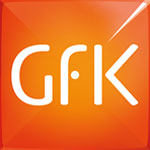Slight improvement in German consumer climate

Consumers are confirming their view from previous months that the domestic economy will help stabilise economic developments in Germany. Although willingness to buy fell slightly, it remains at a high level. In contrast, income expectations were significantly more optimistic in February than in the prior month, which is partly due to the stable labour market. The slight decline in economic expectations demonstrates that the debt crisis at international level is still a risk for the German economy.
Economic expectations: recovery over for now
The noticeable recovery in economic expectations did not continue in February. Following two months of considerable consecutive increases, the indicator value has now fallen. However, despite a drop of 1.6 points, the indicator for economic expectations is still positive at 5.9 points. It is therefore well above the average of 0 points, which had been maintained for many years.
Given that media coverage relating to the debt crisis was somewhat reduced because of the holidays at the time of the January survey, the situation has now changed. As summit meetings resumed, events in Greece were top of the agenda and have therefore moved more strongly back into focus among Germans.
Consumers are evidently under the impression that the recovery of the German economy will be not occur entirely smoothly and, in view of the deep debt crisis in Europe, will also carry risks for Germany that should not be underestimated. The trend towards recession which is spreading throughout the EU is increasingly putting pressure on economic growth in Germany, as it will also have a negative effect on export prospects. Around 60% of German exports are to EU countries. It still remains to be seen whether the developments of the last three months can be considered a positive trend reversal, despite the small drop in February. In contrast, for the fourth time in a row, companies however expect positive business developments, although here, too, it is clear that the German economy is currently primarily borne by domestic business.
Income expectations: marked increase
In contrast to economic expectations, Germans are clearly more optimistic when it comes to income prospects. The income expectations indicator increased by 7.2 points and is now recording a value of 41.3 points and has therefore once again improved from an already impressive level. A higher value was last recorded in June 2011.
The undoubtedly positive situation on the German labour market has caused consumers to have high expectations of management and trade unions. Employees hope that in upcoming pay negotiations, wage and salary rises will be higher than in the past with noticeable increases even after inflation has been taken into account. Furthermore, previous forecasts expect the average increase in living costs to be below 2%, down from 2.3% last year. According to preliminary figures from the Federal Office of Statistics, real wages will however only increase by 1% on average.
Willingness to buy: minor drop at high level
After the major upsurge of 14 points in the previous month, willingness to buy fell slightly in February. The indicator value decreased by 2.6 points and is now at 39.2 points, a level that can without doubt still be considered high.
The pronounced consumption mood is supported by a pleasing labour market development and further enhanced by the ongoing debt crisis. Fears of job losses are lessening as a result of the falling rate of unemployment. Consequently Germans have greater planning security, which is above all necessary for major, high-value purchases.
In addition, consumers' confidence in the stability of their currency and the finance markets has noticeably fallen in the wake of the debt crisis. As a result, consumers are currently more likely to make high-value purchases rather than put their financial resources in the bank at historically low interest rates. Ultimately, the downward trend in the rate of inflation should also boost willingness to buy.
Consumer climate: slight improvement in value
Following a value of 5.9 points for February 2012, the overall indicator is forecasting a value of 6.0 points for March. The consumer climate is therefore continuing its slow but steady upward development.
This confirms the assumption already expressed in previous months that private consumption will continue to be a fundamental base for economic growth in the coming year. GfK's recently published annual forecast predicts that in real terms consumption will increase by 1% this year. In light of the ongoing debt crisis and the outlook that gross national product will likely only rise by less than 1% in 2012, this is a pleasing development for consumption. It will therefore play a considerable role in ensuring that the German economy does not fall into recession this year.
Source: GfK

The GfK Association was established in 1934 as a non-profit organization for the promotion of market research. Its membership consists of approximately 600 companies and individuals. The purpose of the Association is to develop innovative research methods in close cooperation with academic institutions, to promote the training and further education of market researchers, to observe the structures and developments in society, the economy and politics that play a key role in private consumption, and to research their effects on consumers. Survey results are made available to the membership. The GfK Association is a shareholder in GfK SE.
Go to: http://www.gfk.com





